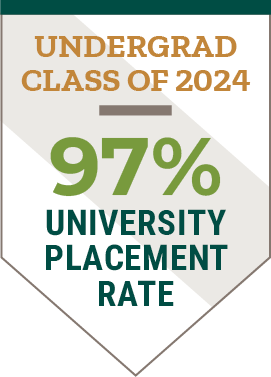
Build the Software That Drives Society
Software touches every part of our lives. Computer scientists create that software and solve problems to make that software even more useful. They do this by using their knowledge of artificial intelligence (AI), machine learning, human-computer interaction, and algorithms, among other areas of computer science. With a Bachelor of Science in Computer Science from Clarkson University, you'll be ready to create tomorrow's technology.
Why Major in Computer Science at Clarkson?
Software is at the core of computer science, and you'll become a proficient coder in this program. More importantly, though, you'll gain a deep understanding of computer science and you'll learn to solve hard problems to make software even better and more useful.
As an undergraduate at Clarkson, you'll study topics such as:
- Software design and development
- Algorithms and data structures
- Operating systems and computer networks
- Artificial intelligence, machine learning and computer vision
- Virtual reality and human-computer interaction
The Department of Computer Science is a small, research department, which is an unusual combination for a computer science program. Our small size leads to a friendly, collaborative atmosphere among students, and to personal attention from the faculty.
The fact that we are a research department means that you'll have the opportunity to get involved in research and help professors push forward the boundaries of the field. It also means that your upper-level CS courses will be taught by experts and that you'll share in the excitement of a program where new knowledge is being created and not just transmitted.
What You'll Learn
Of the 120 credit hours you need to earn a bachelor's degree, the Computer Science major consists of 70 credit hours of computer science, mathematics and science. This leaves you the flexibility to declare a minor or even a second major.
Your computer science courses will cover topics such as:
- Software design and development
- Algorithms and data structures
- Programming Languages
- Theory of computation
- Operating systems
- Computer networks
- Artificial intelligence
- Machine learning
- Computer vision
- Virtual reality
- Human-computer interaction
- Quantum computation
For more information, view the course catalog for current program requirements, course numbers and credit hours




